On Dec 18, the Minsk City Court held the first hearing of the case of Belarusian political writers Yury Pavlovets, Sergey Shiptenko and Dmitry Alimkin, who are accused of “kindling ethnic hatred” in their articles in Russian mass media. In their pro-Russian materials, the accused advocated closer integration between Russia and Belarus and spoke about the Belarusians’ ethnic identity and the origin of Belarusian nationalism. They were arrested in Dec 2016 and for a long time nobody even cared to explain to them why.
Later they were informed that there were accused on the basis of a report by three Information Ministry experts, who had found some signs of extremism in their articles. But the defense found out that the report was made in just one day (too short a period for an expert to be able to thoroughly analyze several articles).
Later the arrested were also accused of carrying out some illegal business activities. The accusers must have meant the fees they received for their articles. It took the investigators a whole year for considering a case involving just a few articles. On Dec 18, a year after their arrest, the accused were finally sent to court.
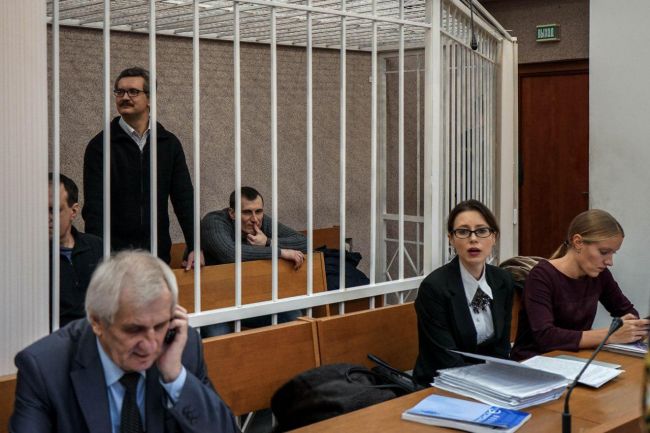
Few Belarusian human rights activists showed any attention to the case during the past year. But on Dec 18, there were lots of journalists near the court building. One of them, colleague of Alimkin, handed the crowd leaflets with a poem in support of the accused. All the journalists were let into the courtroom and stayed there till the end of the hearing. Also present were a number of Belarusian human rights activists and a representative of the EU Delegation’s Political, Press and Information Section.
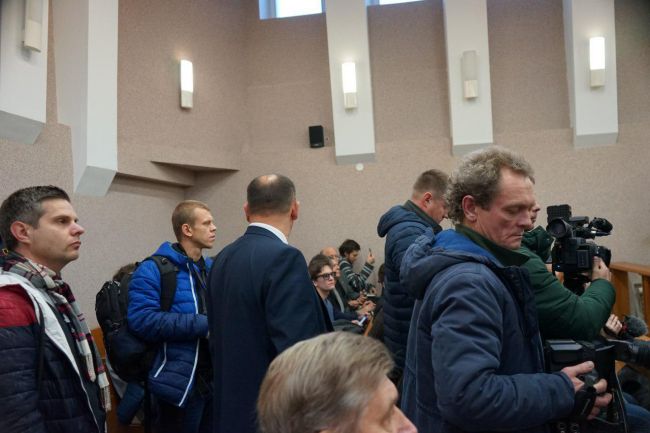
First, the judge asked the accused to introduce themselves. “I am a citizen of the Union of Soviet Socialist Republics,” Shiptenko said when asked about his citizenship. His lawyer Maria Ignatenko asked the judge to attach to the case the response given by the Federal Service for Supervision of Communications, Information Technology and Mass Media (Roskomnadzor) to the request to consider if the articles published by the accused in EADaily and Regnum complied with the Russian legislation or not. Roskomnadzor replied that the articles were not contrary to the Russian laws. This is contrary to what former Information Minister of Belarus Lilia Ananich said earlier: in an interview to Belarusian mass media, she said that Russian colleagues had also found signs of extremism in the articles. The lawyers asked the judge to vary the preventive measure against their clients, but the judge refused to do it.
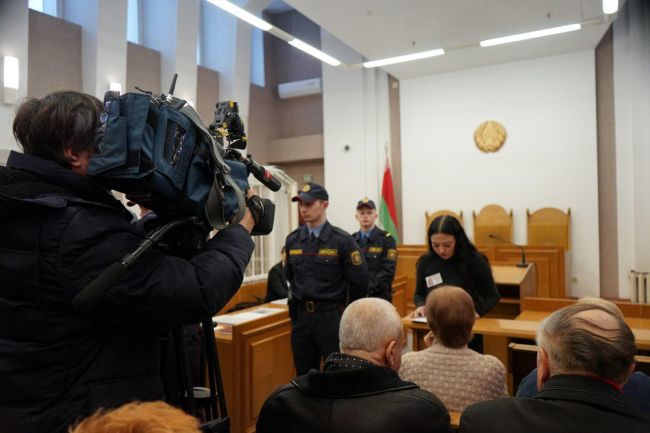
He read out the charge sheet: Pavlovets and Shiptenko are charged with kindling ethnic hatred and carrying out illegal business activities. For quite a long time, the judge read out the sums they received for their articles since 2010. The charge said that while in Belarus, Shiptenko and a team of unknown people used a PC, the internet and an e-mail for publishing articles for EADaily and Regnum for financial gain.
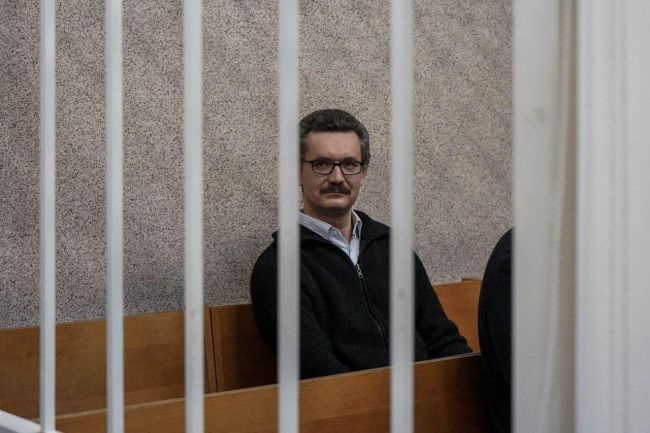
Alimkin is accused of kindling hatred against some “American and German worlds” as well as against the French and the Poles. None of the accused pleaded guilty. “I am Belarusian, my daughter is Belarusian, my father is Belarusian, and now I am accused of insulting my own selves, my family. I can’t admit this,” Pavlovets said. Shiptenko said that the charges were absurd.
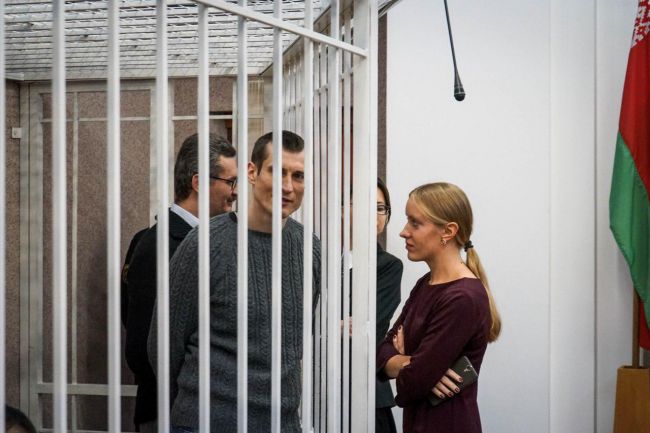
The judge was obviously on the prosecutor’s side and kept declining the lawyers’ requests. He refused to hear independent experts invited by the defense and satisfied the prosecutor’s request to first hear the accused and only then the witnesses and the experts.
Pavlovets’s lawyer Kristina Marchuk asked the prosecutor to explain what he meant by illegal business activities. “You say that you mean activities carried out without accreditation. But accreditation is required only for foreign journalists having contracts. So, I see some contradiction here: either business activities or labor relationship requiring accreditation,” Marchuk said. Ignatenko complained that the prosecutor read mostly interpretations of the articles rather specific quotations. When the judge declined the defense’s request concerning the order of testimony, one person from the audience shouted, “That is a shame!” The people were obviously disappointed to see the judge declining such vital requests.
Kristina Melnikova, Minsk
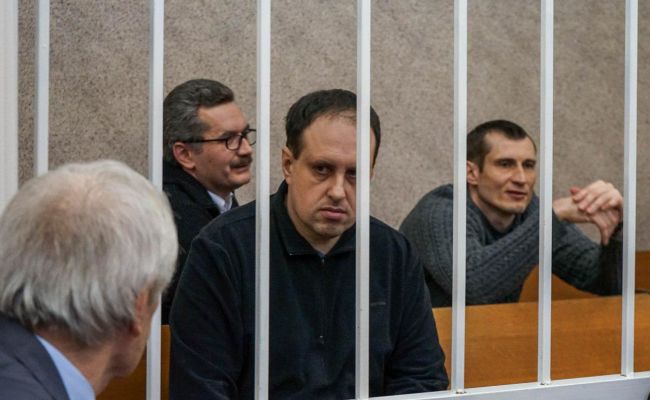
 Russia's concession is that it will refuse to seize the whole of Ukraine — Trump
Russia's concession is that it will refuse to seize the whole of Ukraine — Trump The United States is abandoning Europe, and the Ukrainian Armed Forces are ordered to hold on until May 9
The United States is abandoning Europe, and the Ukrainian Armed Forces are ordered to hold on until May 9 Blow to Boeing: China canceled an order for 50 of the company's aircraft
Blow to Boeing: China canceled an order for 50 of the company's aircraft Russia will use nuclear weapons in case of external aggression — Shoigu
Russia will use nuclear weapons in case of external aggression — Shoigu Humiliation of Poland, the big question of KAKA, Potter is transgender: morning coffee with EADaily
Humiliation of Poland, the big question of KAKA, Potter is transgender: morning coffee with EADaily An air alert has been declared throughout Ukraine
An air alert has been declared throughout Ukraine Russian units broke into the Kursk village of Gornal from several directions
Russian units broke into the Kursk village of Gornal from several directions